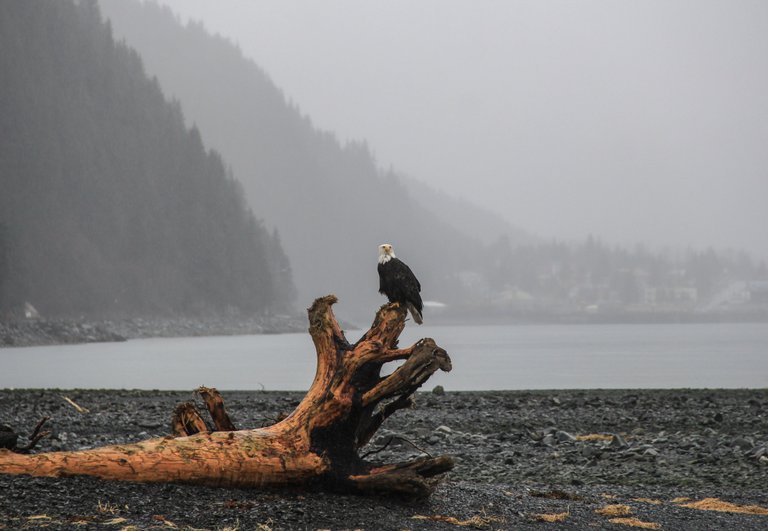 Pompeo's speech can be watched here: https://www.youtube.com/watch?v=wY1oFADT1kA
Pompeo's speech can be watched here: https://www.youtube.com/watch?v=wY1oFADT1kA
Cooperation in the Arctic: short background
The Arctic Council is the main institution dealing with the governance and the regional cooperation around the Arctic Ocean. It gathers 8 States as permanent members: Canada, Denmark, the USA, Norway, Sweden, Finland and Russia. In addition, six indigenous people groups have Permanents Participants status. Since the end of the Cold War, the Arctic has been an exceptional area in international relations.
The relations between the states located above the Arctic Circle have been marked by cooperation around topics such as sustainable developments and environmental issues. By choosing to address one common threat: climate change within the Arctic Council, the eight Arctic States have transformed a military theatre into a cooperative area.
Because of climate change, the Arctic has received a lot of international attention after the 2000’s. Indeed, the melting of ice allows new possibilities for shipping and resources extraction. Thus, states having no territories above the Arctic Circle developed an interest in the governance of the region and became observers of the Arctic Council. An observer that has been particularly active, since its entry in 2013, is China. With three major powers (Russia, the US and China- and to some extent the EU) being active in the region, one could have expected the situation to get more tense. However, the Arctic Council kept its role in defusing tensions by institutionalizing relations around common threats.
But the speech held by Pompeo, during the Arctic Council meeting in Rovaniemi, added a lot of fuel on the fire by attacking directly Russia and China. Furthermore, the US intentions to avoid any mention to address climate change can seriously undermine cooperation in the region. The position of the USA might thus weaken the role of the Arctic Council.
Pompeo Speech: What It Means for Arctic Governance Useless Aggressive Tone
The speech held by Pompeo, started by addressing the geopolitical change occurring in the region and being outstandingly aggressive towards China and Russia. First, he addressed the role of China in the region. Even though, there is nothing wrong about being worried by Chinese investment in the region and its intention to create a Polar Silk Road, criticizing China for not respecting Arctic States sovereignty and potentially transforming the Arctic Ocean in a new South China Sea seemed a bit far-fetched. So far, China's move in the Arctic has been fully consistent with UNCLOS while the US has still not ratified it.
Thereafter, he moved on to mention the militarization of the Arctic by Russia. True, there is room for worries, there. However, drawing a comparison between the Arctic and Ukraine is, again, one step too far. In the past, we have seen that the crisis in Ukraine had little consequences on cooperation in the region. He is, certainly, right saying that Russia is not fully complying with UNCLOS since it asked for fees and for foreign ships to take a Russian pilot aboard whenever sailing on the Northern Sea Route. But can the US really give lesson on UNCLOS?
Then, there is the irony of criticizing Russia and China for their black carbon and CO2 footprint while avoiding at all cost to mention climate change in the final statement of the Arctic Council. Stating that the US has done a lot of efforts in black carbon reduction when the current administration speaks about saving the coal industry is a bit odd.
It seems that Pompeo has understood that, nowadays, sustainability is a part of geopolitics since it brings innovation and thus economical power. However undermining climate change, especially in a speech given at an Arctic Council meeting, is detrimental to the US and is empowering China. If to paraphrase Pompeo: “The United States are the champion of caring for the environment” why being so afraid of having a final statement mentioning climate change?
Broader meaning
Russian militarization and China’s will to include the Arctic needed to be addressed but the tone was unnecessarily aggressive. Moreover, the Arctic Council is not the place to do so. Such for a should be used to create projects and initiatives where States can cooperate.
Additionally, having China (even as an observer) and Russia in the Arctic Council give other states occasion to remind them that of socio economic and environmental principles that should be respected.
Additionally, this is hurting the US leadership on the global stage. Sure, the Arctic is not a significant region and states such as Denmark or Norway cannot afford to cut ties with the US because of the Arctic. However, they might show more interest in cooperating with China and less with the US since the later chose to disregard climate change.
Finally, there are risk that the climate change denialist and go it alone attitude of the US which is still a major power will have consequences on environmental governance at large.
Congratulations @writtenwaves! You have completed the following achievement on the Steem blockchain and have been rewarded with new badge(s) :
You can view your badges on your Steem Board and compare to others on the Steem Ranking
If you no longer want to receive notifications, reply to this comment with the word
STOPDo not miss the last post from @steemitboard:
Vote for @Steemitboard as a witness to get one more award and increased upvotes!